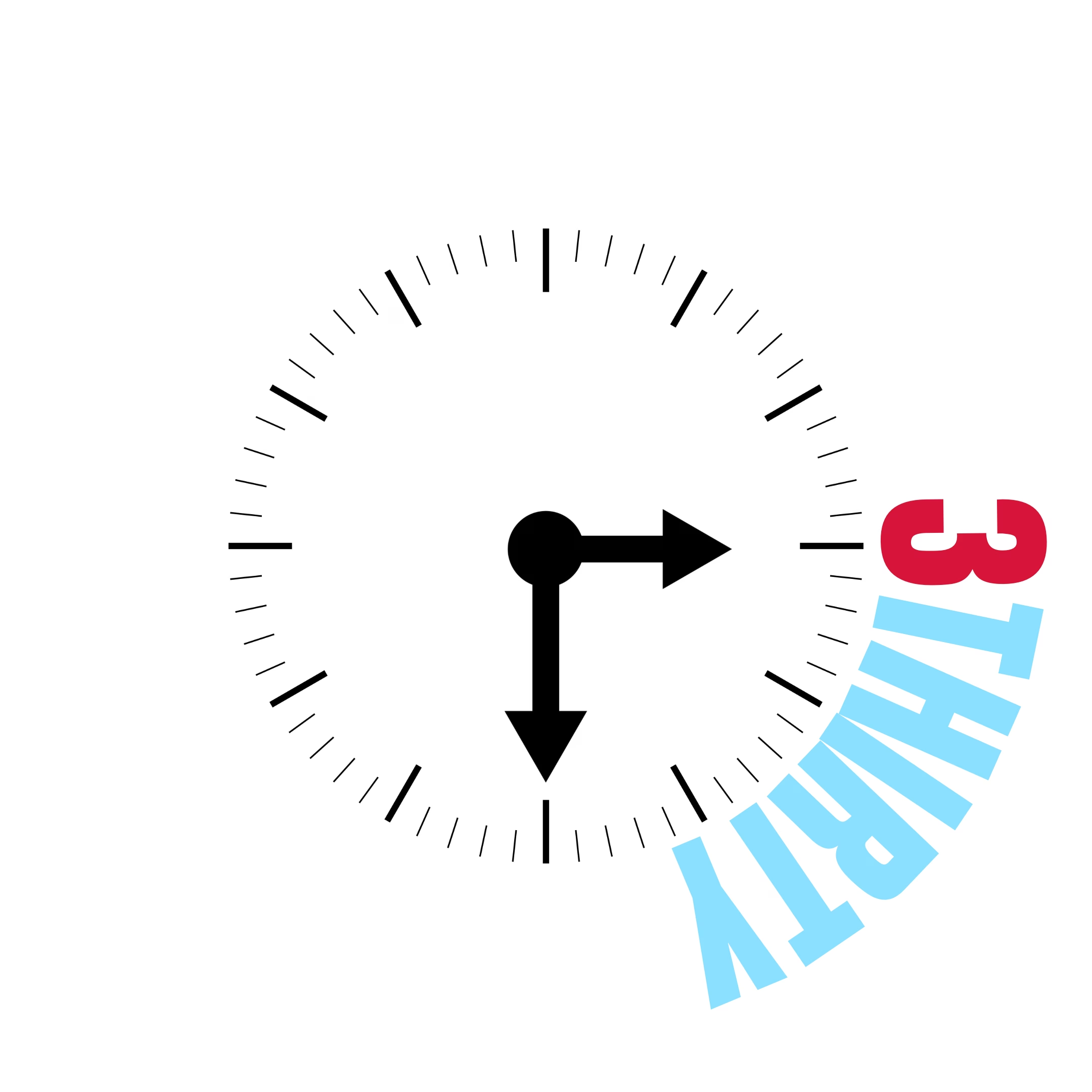Psychologist: An Opportunity to Transform Lives in the New South Wales Public Sector
Stepping into a Psychologist role within the Department of Communities and Justice (DCJ) means becoming part of a dynamic, multidisciplinary team dedicated to serving children, young people, and families in out-of-home care. This position offers a chance to immerse yourself in trauma-informed practice while making a tangible impact on vulnerable individuals who rely on therapeutic care and evidence-based interventions to improve their lives.
Government Psychologist Position Details
| Position Title | Psychologist |
|---|---|
| Organisation/Entity | Department of Communities and Justice |
| Job Location | St Marys, Greater Western Sydney |
| Work Type | Ongoing (Full-Time) |
| Base Pay | $76,531 – $148,932 p.a. + Superannuation + Leave Loading |
| Closing Date | Sunday 19 January 2025 at 11:59 PM |
Free Team 3Thirty Digital Membership
Fast-track your path to an NSW Public Sector role with free resources.
✓ Free to JOin. Cancel anytime
✓ example cover letters
✓ Request a Custom Application Guide
About this Government Psychologist vacancy
The Department of Communities and Justice (DCJ) strives to break, rather than manage, disadvantage in New South Wales. This Psychologist position sits within the LINKS Trauma Healing Service, focusing on therapeutic care for children and young people in out-of-home care. Through trauma-focused interventions such as TF-CBT (Trauma-Focused Cognitive Behavioural Therapy) and EMDR (Eye Movement Desensitisation and Reprocessing), the role addresses the social, emotional, and cognitive challenges associated with experiences of abuse or maltreatment.
LINKS Trauma Healing Service (LINKS) delivers trauma focused, evidence-based support to children in out-of-home care. Provided by the Department of Communities and Justice, the service seeks to decrease trauma symptoms, increase psychological wellbeing and improve behavioural and emotional functioning.
There are four LINKS teams operating in Penrith, Newcastle, Western (Orange hub), and the Illawarra.
Challenges for Government Psychologists
Working in child protection psychologist roles comes with specific challenges that demand resilience, empathy, and advanced clinical skills.
One of the most significant hurdles is addressing the complex needs of children and young people who have experienced trauma. Designing effective intervention plans often requires combining multiple approaches—such as behaviour support, psychological assessment, and clinical interventions—to ensure each child’s individual strengths and needs are acknowledged.
Additionally, some travel between offices and client sites may be necessary, and working in regional or remote areas can introduce unique logistical and service-related challenges. Balancing in-person and work-from-home arrangements, maintaining up-to-date clinical records, and delivering training in trauma-informed care are also integral to success in this role. Still, these challenges come with the reward of seeing meaningful, positive outcomes for children and families.
Benefits for this Government Psychologist position
This Psychologist position presents a wealth of reasons to consider applying if you want to develop expertise in youth and family services within the New South Wales public sector. Below are just a few:
Entry-level opportunities and career growth: If you’re just beginning your professional journey—whether you’re a provisional psychologist or a new graduate—this role provides an excellent foundation. Mentorship, supervision, and professional development sessions ensure you hone your therapeutic skills in a structured environment.
Talent pool recruitment: DCJ may establish a talent pool for future positions, allowing you to be considered for a variety of similar roles over an 18-month period. This approach broadens your career prospects and keeps doors open for advanced or specialist positions that may arise.
Flexible working conditions: DCJ offers a 35-hour workweek, flexible scheduling, and options for balancing in-person and remote work. This structure helps maintain a healthy work–life balance, especially when working in demanding contexts like trauma-informed care.
Professional development: The Department invests significantly in training and reflective practice sessions. As a Psychologist, you’ll have access to ongoing learning opportunities, including the Annual Psychological and Specialist Services Conference and various group intervention workshops.
Application Requirements for Government Psychologist with DCJ
Securing a Psychologist role within DCJ involves showcasing your relevant skills, qualifications, and commitment to out-of-home care. Understanding how public sector applications work in New South Wales can significantly increase your chances of success.
Application Process
The first step is to submit a cover letter and an up-to-date resume.
There is no strict word count stipulated for the cover letter in this instance. However, it’s advisable to keep it concise yet comprehensive, addressing key points about your background, your interest in trauma-informed practice, and how your qualifications align with the role’s demands. Because no target questions are provided in this job advertisement, you only need to focus on explaining your suitability for the position and highlighting any specific experiences relevant to child protection psychologist duties. You should be able to write an effective cover letter two pages.
For those unfamiliar with NSW Public Sector applications, it’s useful to know that clarity and structure are paramount. Referencing how you meet or exceed the essential requirements is critical. Reflect on how your previous roles, academic projects, and community involvement have prepared you for this Psychologist position. Use real examples where possible, demonstrating your capacity to deliver meaningful clinical interventions, behaviour support, or psychological assessments.
Essential Role Requirements
Applicants should hold tertiary qualifications in Psychology that are recognised by the Psychology Board of Australia. Provisional or full registration is required, and you should be able to demonstrate a solid foundation in child trauma theory and practice. An understanding of how psychological interventions intersect with Aboriginal and Torres Strait Islander communities, as well as culturally diverse populations and individuals identifying as LGBTQIA+, is vital for inclusive therapeutic care.
A valid driver’s licence is necessary because you may need to meet with clients at their schools, homes, or other offices. For those applying as a Specialist Psychologist, the position may require a postgraduate degree (masters or higher) in an area such as clinical, forensic, or counselling psychology.
Desirable Experience
Candidates with knowledge of trauma-informed frameworks and proven skills in delivering evidence-based treatments—like TF-CBT or EMDR—will stand out. Experience providing consultation or training to staff and carers is also highly valuable, as the role includes equipping teams with the best practices for managing complex cases of abuse and neglect.
Exposure to youth and family services, out-of-home care settings, or relevant nonprofit agencies can further demonstrate your commitment to improving the lives of vulnerable children. Additionally, any track record of research, data collection, or program evaluation can prove beneficial, particularly for those aiming to refine or contribute to existing therapeutic programs.
Application Checklist for Government Psychologist
| Checklist Item | Details |
|---|---|
| Cover Letter | Address your interest and relevant skills. No target questions to include. |
| Resume | Outline education, work history, and relevant experience clearly. |
| Qualifications | Provide proof of provisional or full registration with the Psychology Board of Australia. |
| Driver’s Licence | Hold a valid licence for travel to various office or client locations. |
| Referees | Prepare contact details of professional or academic references. |
Understanding and Addressing Focus Capabilities
The Department of Communities and Justice outlines focus capabilities in the official role description. These are competencies aligned with the NSW Capability Framework, which can be found at https://www.psc.nsw.gov.au/workforce-management/capability-framework.
The key to a compelling application is weaving evidence of these capabilities—be it during your cover letter, resume, or interviews—into clear, relevant examples.
If you demonstrate that your approach to trauma-informed practice, psychological assessment, or behaviour support aligns with DCJ’s focus capabilities, you’ll stand out as a top candidate. Adapting your CV and cover letter to reflect these competencies also shows that you understand the public sector’s emphasis on transparency, collaboration, and integrity.
Candidate Profile for Government Psychologist
Meet Jamie, a provisional psychologist who recently completed a Bachelor’s degree in Psychology and is currently registered with provisional status. While studying, Jamie worked casual shifts in hospitality, where they honed strong communication and teamwork skills. These experiences, combined with a deep passion for supporting children facing psychological trauma, have inspired Jamie to pursue the Psychologist role at DCJ.
Jamie is eager to make a direct impact on youth and families by providing evidence-based, ongoing support. The role’s flexible working arrangements, robust supervision structure, and alignment with Jamie’s values of social justice make this opportunity an ideal fit for their career aspirations.
Government Psychologist Example Cover Letter
Dear Hiring Manager,
I am excited to apply for the Psychologist position within the Department of Communities and Justice (DCJ). As a provisional psychologist who recently completed a Bachelor’s degree in Psychology and is currently working towards general registration, I am eager to support vulnerable children, young people, and families through evidence-based, trauma-informed care.
While completing my studies, I developed a strong foundation in psychological theories and therapeutic approaches relevant to trauma recovery. During my coursework, I gained experience with cognitive and developmental assessments and explored therapeutic models such as Cognitive Behaviour Therapy (CBT) that align with the LINKS Trauma Healing Service program. These experiences have deepened my commitment to supporting children and families in overcoming the challenges associated with out-of-home care and trauma recovery.
Alongside my academic pursuits, I worked for several years in hospitality, where I cultivated strong interpersonal and conflict resolution skills.
While working in hospitality, I encountered a situation where a family with a young child, who had sensory sensitivities, became visibly distressed by the busy and noisy environment of the venue. The parents were overwhelmed and unsure how to calm their child while also enjoying their dining experience. I needed to ensure the family felt supported and comfortable in the environment while maintaining a positive experience for all patrons. This required quick thinking, strong communication, and a calm approach to de-escalate the situation.
I approached the family with empathy, acknowledging their concerns and reassuring them that I wanted to help. I offered to seat them in a quieter section of the venue and provided suggestions, such as dimming the lights and reducing unnecessary noise in their area. I also brought the child a small activity pack we kept for younger patrons to help redirect their focus to something calming. Throughout the interaction, I remained attentive and checked in regularly to ensure they were comfortable.
The family expressed gratitude for the tailored support, and the child became comfortable in the environment, allowing the parents to enjoy their meal. My manager commended me for my quick thinking and empathetic approach, highlighting how it reflected well on our service standards. This experience reinforced my ability to remain composed under pressure, actively problem-solve, and tailor solutions to meet individual needs—skills that are directly applicable to working with vulnerable children and families at DCJ.
I am particularly drawn to the supportive environment at DCJ, including the emphasis on professional development and reflective practice. The opportunity to work within a multidisciplinary team while providing expert guidance to managers and caseworkers aligns with my career aspirations. I am motivated to build on my skills, contribute to trauma-informed care, and help create meaningful, positive outcomes for children and families.
Thank you for considering my application. I look forward to the possibility of discussing how my qualifications and passion align with DCJ’s mission to make a real difference in the lives of children and young people.
Sincerely,
Jamie Smith
Explain the STAR Technique
The STAR technique—Situation, Task, Action, Result—is widely used in public sector applications and interviews to structure strong, evidence-based responses. By framing examples of your professional or academic achievements within this format, you provide clear insight into how you identify problems, take initiative, and deliver results.
In the cover letter above, the example of assisting a family with a child experiencing sensory sensitivities demonstrates Situation (a distressed child and overwhelmed family in a noisy environment), Task (creating a more comfortable dining experience for the family), Action (relocating them to a quieter area, adjusting the atmosphere, and providing calming activities), and Result (the child settled, the family enjoyed their meal, and the venue’s service standards were upheld). This highlights Jamie’s ability to address unique challenges with empathy, problem-solving, and effective communication.
Interview Preparation
Once your application is lodged, preparing for the interview is the next essential step. In a Psychologist interview for a role that focuses on out-of-home care and youth and family services, expect discussion around trauma-informed practice, teamwork, and problem-solving in real-life scenarios.
The NSW Public Service Commission provides a tool with example interview questions, which you can find at https://www.psc.nsw.gov.au/workforce-management/capability-framework/capability-framework-resources-index/capability-application-tool. As a prospective Psychologist, you might be asked questions like:
- “How would you adapt a therapy plan for a young person who shows significant signs of trauma and refuses to participate in standard assessments?”
- “Can you describe a time you used a trauma-informed approach in a high-pressure scenario?”
- “What strategies do you implement to maintain your wellbeing and manage professional stress?”
You’ll also likely be asked to discuss or demonstrate your understanding of focus capabilities. This is a chance to highlight your past experiences and alignment with DCJ’s mission to improve lives, especially for children and young people in out-of-home care.
More Psychologist Roles Available
Joining the Department of Communities and Justice (DCJ) as a Psychologist is a rewarding career move, offering the chance to deliver evidence-based interventions and support children on their healing journeys through trauma-informed practice. With flexible working conditions and significant professional development opportunities, DCJ is deeply committed to investing in its workforce. If you’re seeking a role that combines personal growth with the opportunity to make a life-changing impact, this could be the perfect next step.
This is just one of many Psychologist roles currently being recruited. A variety of similar positions are available across different locations and departments. You can apply the principles outlined in this application guide to review any job advertisement and structure your cover letter effectively.
For those seeking additional support, members of Team 3Thirty can request a custom application guide tailored to a specific role. This includes an example cover letter and a selection of potential interview questions to help you stand out.





